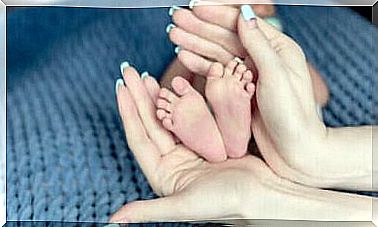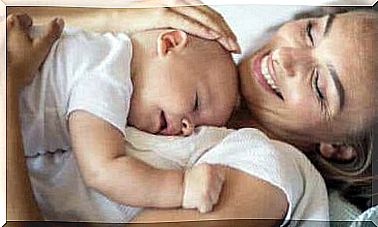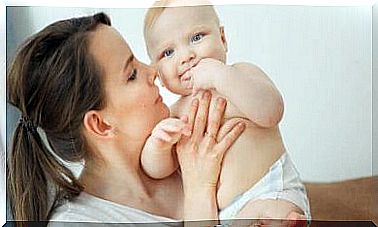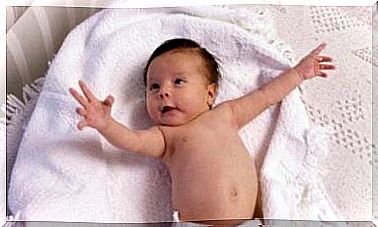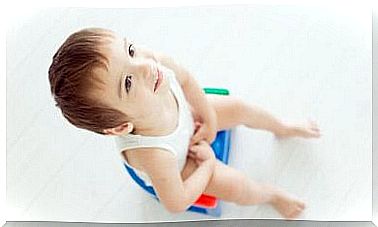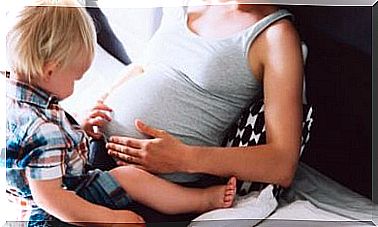5 Tricks To Relieve Itching During Pregnancy
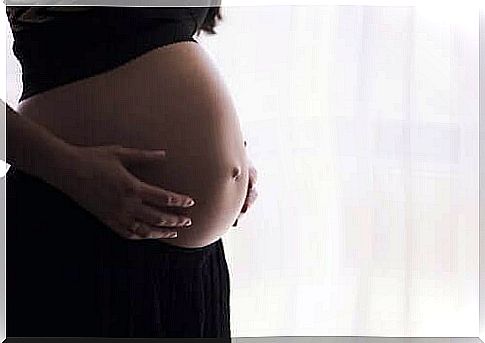
A woman’s life changes completely during pregnancy. Her hormones, her body and even her mind appear completely different. She is starting to experience noticeable changes, especially in her skin. In this article, we take a look at how to relieve itching, which is a common discomfort.
In general, expectant mothers worry about how to handle all these changes. Some of them may be simple, others may have consequences if we do not take some necessary steps to deal with them.
Such is the case with itching during pregnancy, an often uncomfortable situation that we do not know how to handle and that sometimes leaves traces on our bodies. Dealing with it without causing major trauma is part of our reality during all pregnancies.
Itching during pregnancy
When we are pregnant, the whole body can itch, but mostly areas such as the breasts, abdomen and hips. This can also be called “pruritus” and occurs when our stomach expands itself to make room for the baby who is growing fast.
How common is this discomfort?
This is a common symptom that affects around 40% of pregnant women. Generally, it occurs during the second or third trimester when the skin stretches the most. It seems to be a common discomfort during the wonderful process of carrying a small and fragile creature in your womb.
Why is this happening?
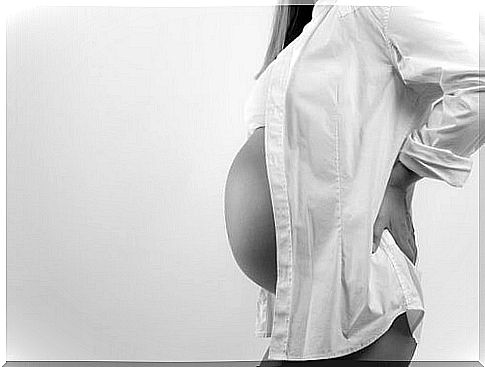
We should keep in mind that all changes during pregnancy are important, whether it is the immune system, the endocrine system or the metabolism. Skin tissue or appearance is no exception. This contributes to the appearance of itching and brings with it dryness and irritation as well as flaky skin.
Another symptom that you may experience is that your palms and soles become red and itchy. This is because the hormone estrogen increases sharply. This usually disappears after childbirth.
Other types of rashes can also occur. An example is a rash or spot on the abdomen that is much larger than a normal skin rash. So eye-catching and large that it looks like hives. It is called PUPPP ( Pruritic Urticarial Papules and Plaques of Pregnancy) and is an allergy-like itching that is uncommon but can occur in pregnant women. It also usually disappears after childbirth.
Tricks to relieve itching
Now that we have taken a look at what the different types of itching mean, we will show you 5 tricks to alleviate this discomfort.
- Take a cold shower and use a non-allergenic soap that is made on or contains glycerin, almonds, oatmeal or aloe vera.
- Use a moisturizer that is made from natural ingredients or make your own at home and base it on honey and chamomile. Or use natural oils such as almond, coconut or lavender (the latter is known for its excellent ability to restore the outer layer of skin.)
- Drink plenty of water and perform light exercise such as walking. Do this during the cooler hours of the day. This will increase your circulation and relieve itching. Do not forget to use sunscreen to avoid discoloration on the body due to any rashes that are exposed to sunlight.
- Wear loose-fitting clothing and natural fibers such as cotton, and bright colors.
- Use oatmeal and bicarbonate.
Some tips to relieve itching more effectively

Here are some tips that you can keep in mind to strengthen the effectiveness of the tricks we mentioned above:
- Try to avoid hot baths or showers. These dry out your skin and aggravate the itching.
- Use natural detergents and detergents as well as cleaning products.
- Rinse well with cool water and use soft towels.
- Try not to go out when it is hottest as it may aggravate the itching.
- Call your doctor immediately if you think you may have cholestasis as it may cause some risks to your baby.
- Stay where it is cool and shady as much as possible. Avoid contact with old objects, dirt and mites.
These recommendations will help you deal with this discomfort and allow you to feel more comfortable as you prepare for this special day, the arrival of a new family member.
All of these suggestions must go hand in hand with your midwife’s guidance and advice. We hope we can accompany you during the best chapter of your life, when you become a mother.

